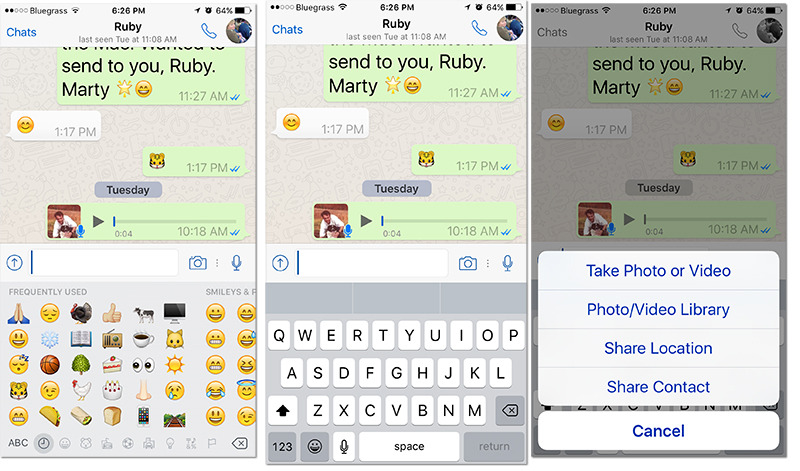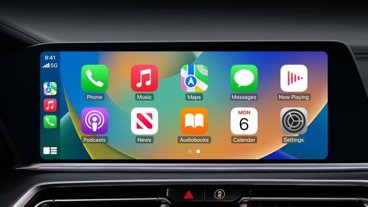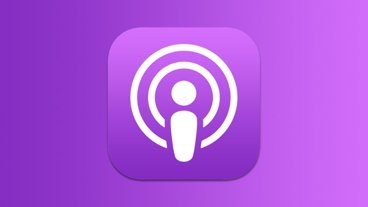When WhatsApp Messenger went free earlier this year it gave iOS device owners a viable solution to connect with friends and family who don't use Apple products, but the app comes with a few caveats.
As an established, preinstalled, cross-platform product, iMessage is one of the most used apps in across Apple's ecosystem. It lets iOS and Mac device owners send native text, emoticons, pictures, audio recordings, videos and more to each other without cutting into SMS allotments. And for the most part, iMessage is reliable.
When you and those around you are deeply invested in Apple products, it's sometimes easy to forget that people live outside the walled garden. In some cases, sending multimedia content to non-Apple users is a chore, but luckily you have options.
WhatsApp Messenger started life in 2009 as a standalone messaging app available for most platforms including iOS, Android, Blackberry and Symbian. The fact that it runs on so many platforms has made the app popular in areas where branded smartphones, and their included first-party apps, do not have a stronghold.
As of January 2016, the global WhatsApp user base numbered just shy of 1 billion people, a huge percentage of the world's population rivaled only by FaceBook, which purchased the messaging company in 2014 for a staggering $19 billion. Prior to this month, WhatsApp came with a $0.99 per year subscription, but thanks to an aggressive expansion strategy into lower tier markets, it's now available for free.
WhatsApp vs. iMessage
In many respects WhatsApp is a similar service to iMessage. You can send messages, pictures, video, voice recordings, emoticons and more to other WhatsApp users, either individually or as part of group messages. There are, however, shortcomings that might make it a hard sell for longtime iMessage users.
WhatsApp's greatest weakness is that the service is tied to a phone number, meaning you can only use it on one mobile device with no continuity. Unlike iMessage, there is no way seamlessly switch from an iPhone to Mac. WhatsApp offers Web interface that lets users log in by taking a photo of a QR code, but the process must be repeated once that session closes.
Security is also lacking in WhatsApp. End-to-end encryption exists for Android devices but not iPhone. Like other apps, WhatsApp requests access to a user's contacts list to connect with friends who also use, or one day start to use, the service. The convenience might not be worth the security concerns of uploading to WhatsApp's — and Facebook's — servers.
A built-in calling feature comparable to FaceTime Audio is also included, but the implementation is not what I would consider stable. Similar to iMessage, audio calls can be initiated from the contacts screen, while a "slide to answer" graphic pops up on the receiving end. When calling other iPhones, however, I have more than once encountered a bug that does not allow the recipient to answer when the phone is locked. Instead, I have to message them first, tell them to open the app and redial, hardly an ideal workaround. Unfortunately video calls are not yet supported.
WhatsApp does have a few redeeming features that would be nice to see implemented in iMessage. For example, the app offers easy tracking of the data you send and receive. A network usage screen shows number of messages sent and received, as well as a breakdown of bytes used to transfer media and messages. Though you can track cell usage of iMessage, the implementation in WhatsApp is much more granular.
The third-party app also supports a "broadcast" messaging feature akin to groups in iMessage. Unless everyone in a conversation is using iMessage, Apple's version is limited to ten recipients total. In WhatsApp you can send a broadcast message to 256 people at once as long as they have your contact info, regardless of their phone operating system. Further, broadcast messages can be assigned a separate alert tone from individual messages.
Preserving conversations in WhatsApp is more robust than iMessage. In iMessage conversations can be saved for 30 days, one year or forever, while WhatsApp is able to archive all conversations to iCloud, freeing up space on your phone. In the future, if for instance you purchase a larger capacity phone, you can pick and choose the past conversations and media to reinstall.
In the end, it comes down to compatibility and stability. Extra features are niceties, and while WhatsApp is certainly capable — certainly worth trying out if you have friends or family on other devices — iMessage is a more well-rounded, solid solution.
WhatsApp Messenger is a free download from the iOS App Store.
 Marty Edwards
Marty Edwards









-m.jpg)






 Charles Martin
Charles Martin
 Marko Zivkovic
Marko Zivkovic
 Andrew Orr
Andrew Orr
 Amber Neely
Amber Neely

 William Gallagher and Mike Wuerthele
William Gallagher and Mike Wuerthele










45 Comments
The fact that it is owned and data mined by Facebook makes it a little too creepy for my taste.
Apple could own the space if they'd just release a cross platform version. And it would help entice switchers. I don't particularly care for WhatsApp, but it's the easiest solution for group messaging (greater than 10) when you have a group of 15 iPhones, 8 Androids, and 1 Windows phone. C'mon Apple...it would be easy.
Er... once connectivity has been established with the web interface using the QR code, there is no need to keep re-scanning the QR code for every successive session. It's purely a one time thing.
I am on an iPhone 5 with an iMac and run WhatsApp on both everyday. I only had to scan the QR code the first time I set up the web interface.
Second point, audio calling on WhatsApp has not been unreliable as the article seems to suggest. Call quality has always been excellent with crystal clear audio and no lag or echo of any kind.
Finally, for those of us concerned with Facebook's data mining, there's an equally good alternative - Telegram. Telegram tout security as their USP.
Unfortunately, as crofford said, until Apple decides to make iMessage cross-platform, WhatsApp is the way to go. The whole world uses WhatsApp.
The author makes a claim at the very end about iMessage being the more well-rounded robust solution. I am afraid my experience has been quite the opposite. It's WhatsApp that I believe is more well-rounded, sheerly in terms of ubiquity and working on practically every device out there; and more solid in terms of reliability. Again, that is just my experience. YMMV.
Cheers
I had WhatsApp for quite a while but ditched it as soon as the Zuck took over.
Those jokers at Facebook are even creepier than Google... and that takes talent.
I think you missed this in the article and left the impression that Apple Messages is a Apple to Apple solution only. Apple Messages connects to non-Apple users through SMS and you can add Facebook, Google Talk, AIM, MSN messengers as well. For me its a multi-messenger window.